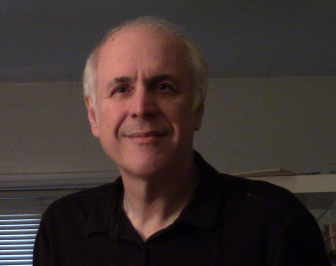
adriaticfoto/Shutterstock
.
I’ve written about a study that found that poor mothers often avoid revealing their problems or accepting much-needed help because those asking about the problems and offering the help are mandated reporters — they are required by law to report any suspicion of child abuse or neglect.
In that study, one mother from Rhode Island reads aloud from a questionnaire she receives every two months from her child’s school. She is asked to respond to a series of statements, such as: “I feel little interest or pleasure in doing things.” “I feel too stressed to enjoy my child.” “I get more frustrated than I want with my child’s behavior.”
“It’s like a trap,” the mother said. “If you say yeah, I get more frustrated with my child’s behavior, that means you’re gonna hit ‘em or something, they probably think …”

Richard Wexler
That trap may soon be sprung on millions of poor families in California. The goal of a new program, launched by the state’s health department at the beginning of this year, is to have health care providers administer questionnaires to caretakers and teenagers about Adverse Childhood Experiences (ACEs). It’s being described as a giant experiment. However, no one seems to be asking if it’s ethical to force poor people to become human guinea pigs without true informed consent.
No, the intent isn’t to trap anyone. It never is. But the history of child welfare in the U.S. is that it just keeps winding up that way. In this case, that’s partly because of the questions, but mostly because of who is asking.
The whole project is the brainchild of Dr. Nadine Burke Harris — a pediatrician with good intentions and a flair for publicity, but also an unfortunate tendency to make statements that go beyond what the science tells us. For example, I’ve written elsewhere about how she has contributed to hype and hysteria over opioids.
Harris first came up with an ACEs questionnaire while running the Center for Youth Wellness in San Francisco, which she founded in 2013. In 2019, Gov. Gavin Newsom appointed her the state’s first surgeon general. In that capacity, she’s overseeing an effort to have health care providers administer a modified — as in worse — version of the questionnaire to every parent and teenager whose family receives benefits under California’s Medicaid program, known as MediCal.
Correlations with poverty
The questionnaires are similar to the one cited by that mother in Rhode Island. The version for teens includes questions such as “Have you ever felt unsupported, unloved and/or unprotected?” “Have you ever lacked appropriate care by any caregiver?” “Have you ever lived with a parent/caregiver who had mental health issues?” “Have you ever seen or heard a parent/caregiver being screamed at, sworn at, insulted or humiliated by another adult?” There’s no question about parents who express hostility through stony silence, which raises a question about possible cultural bias.
There is also a whole set of questions that are far more likely to produce “yes” answers if the family is poor. For example: “Have you ever seen, heard, or been a victim of violence in your neighborhood, community or school?” “Have you experienced discrimination?” “Have you ever had problems with housing?” “Have you ever worried that you did not have enough food to eat or that food would run out before you or your parent/caregiver could buy more?”
The program exclusively targets poor people. Apparently parents in Malibu and Marin County never yell at each other.
Burke Harris has a fantasy about how this information will be used:
“A school nurse would also get a note from a physician that says: ‘Here is the care plan for this child’s toxic stress. And this is how it shows up,'” Burke Harris said. “It could be it shows up in tummy aches. Or it’s impulse control and behavior, and we offer a care plan. Instead of reacting harshly and punitively, every educator is trained in recognizing these things. Instead of suspending and expelling or saying, ‘What’s wrong with you?’ we say, ‘What happened to you?'”
Isn’t that lovely? Now, let’s get real.
Even if someone answers no to every question that explicitly mentions child abuse, a child from a poor family is likely to have a high score simply because so many of the stressors mentioned in the questions are correlated with being poor. The people administering the test are all legally mandated reporters of child abuse. Those mothers in Rhode Island know exactly what that means.
It’s not just those who’ve lived the experience and family preservation advocates who have concerns. That is clear from the only story I’ve seen that raises concerns about Burke Harris’ plan. Writing in Science, journalist Emily Underwood writes: “Because state law requires providers to report child abuse and neglect, David Finkelhor, director of the Crimes against Children Research Center at the University of New Hampshire, Durham, worries that screening could ‘tremendously increase the number of minor or unnecessary referrals to the child protection system.”
Underwood’s story continues: “Burke Harris says that pilot studies haven’t shown a significant uptick in such reports, but the state is monitoring for that. ‘We take those concerns seriously.’”
So there’s been an uptick but it’s not “significant”? Not significant according to whom? I’ll bet it seemed pretty significant to those who had the questionnaire turned against them with a report to child protective services.
Underwood’s story continues: “Finkelhor points out that many ambitious screening projects have failed to show benefit, and some actually caused harm. Universal domestic violence screenings for women, for example, haven’t been shown to improve health or quality of life, he says – perhaps because providers don’t know how to help those who report abuse.”
Or, I would add, perhaps because it can lead to victims of domestic violence having their children taken away — as evidence from another recent study shows. Again, from the story:
“The evidence about what to do for a child with many ACEs is also quite scant, Finkelhor says — especially if the trauma was not recent and the child shows no symptoms. ‘It’s not clear to me that [we should treat] a kid who was abused 5 or 6 years ago but doesn’t have symptoms or problems.’”
But a “first, do no harm” approach is anathema to the “helping” professions. Worse, often the kind of help those professions have to offer — lots of counseling and parent education — can actually make the burdens on a poor family worse.
INFORMED CONSENT
Then, there’s the question of informed consent. The pilot studies Burke Harris mentions: Were the subjects volunteers? Were they explicitly told that the person administering the questionnaire has a legal obligation to report any suspicion of child abuse or neglect? Were they told that yes answers to too many questions could lead to just that? In other words, are they given the equivalent of a Miranda warning? Any answer you give can be used against you. Or, are they just handed the questionnaires and told to fill them out? Because, after all, they’re poor, we have power, and we can do things like this to poor people.
I’m sure no one is literally forced to answer the questions. But what happens to those who refuse? Will the mandated reporter administering the questionnaire then become suspicious and report this failure to cooperate with their child’s health care as medical neglect?
Moreover, what happens if this low-tech surveillance meets high-tech surveillance? California is working on developing a predictive analytics algorithm similar to the Orwellian model in use in Pittsburgh. Here, too, the target is poor people. They are forced to surrender vast amounts of data that are converted into a “risk score” that their children carry with them forever. Here again, there is no informed consent.
So what happens to all these California survey results? Could they make their way into a database that can become part of a predictive analytics algorithm that then slaps the child with a high “risk score”? California authorities haven’t done anything like that — yet. But what is there to stop them?
ONE BENEFIT
The pilot projects have had one benefit. Underwood reports that some of the pilot projects “suggest basic services such as food and shelter, counseling, and instruction in techniques such as meditation can also help children overcome trauma.”
In other words, once again we’re learning that no matter how much the child welfare establishment tries to dress it up in mental health jargon, the problem is poverty and the solution is money.
Burke Harris’ whole approach suffers from the same blind spot that afflicts the entire discussion of ACEs and trauma-informed practice: You can’t fight trauma with trauma. Burke Harris’ questionnaire recognizes that foster care is an “adverse childhood experience” — there’s a specific question about it. What she fails to recognize is that her whole process is likely to inflict that very trauma.
The tragedy is that it actually makes sense to explore trauma and try to do something about it. However, thanks to mandatory reporting laws, it is much more difficult to do just that.
You can have questionnaires to detect childhood trauma and pave the way to providing real help — or you can have mandatory child abuse reporting laws. You can’t have both. Since evidence shows mandatory reporting is a failure, it shouldn’t be hard to decide which to choose.
Richard Wexler is executive director of the National Coalition for Child Protection Reform.































